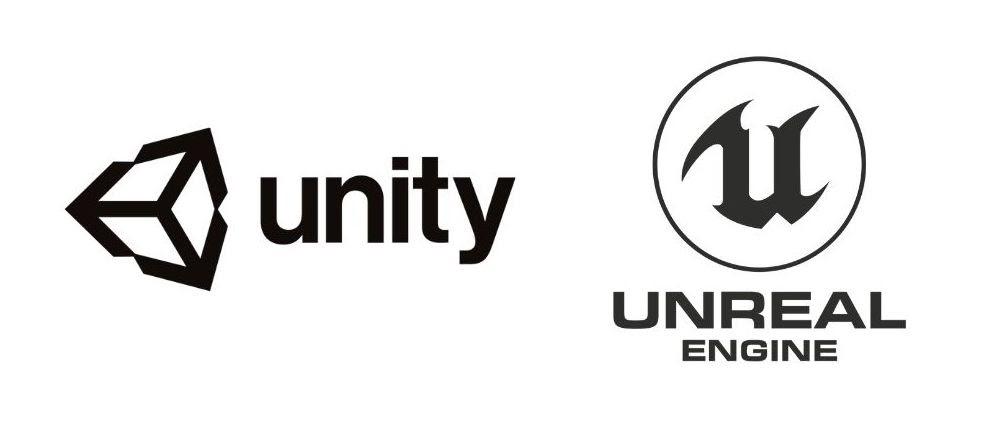Currently Empty: $0.00

Are you a game developer on the hunt for the perfect game engine to bring your creative visions to life? The decision between Unity and Unreal can be a tough one. These two powerhouses in the game development world offer a plethora of features and tools to help you craft your masterpiece. In this article, we’ll dive deep into the Unity vs Unreal debate, examining the strengths and weaknesses of each platform to help you make an informed decision.
Table of Contents
Table of Contents
- Introduction
- Ease of Use
- Graphics and Visuals
- Performance and Optimization
- Platform Compatibility
- Asset Store vs Marketplace
- Community and Support
- Pricing Models
- Learning Curve
- Integration with Other Tools
- Conclusion
- FAQs
Ease of Use
Unity: When it comes to user-friendliness, Unity takes the lead. Its intuitive interface and drag-and-drop functionality make it an excellent choice for beginners. The Asset Store provides a wide array of pre-made assets that can significantly speed up your development process.
Unreal: Unreal, while powerful, has a steeper learning curve. Its Blueprint visual scripting system simplifies coding but might still pose challenges for newcomers. However, the effort you invest in learning Unreal can pay off with its advanced capabilities.
Graphics and Visuals
Unity: Unity offers impressive graphics, especially for 2D games. While its 3D capabilities are strong, Unreal edges ahead in terms of photorealistic visuals. Unity’s Shader Graph allows for creative control over visual effects.
Unreal: Unreal Engine is renowned for its stunning, lifelike visuals. The engine’s built-in ray tracing and high-fidelity rendering capabilities give it a significant advantage, making it the preferred choice for developers seeking top-notch graphics.
Performance and Optimization
Unity: Unity’s performance is solid, and it’s known for being efficient in mobile game development. However, large-scale 3D worlds might encounter optimization challenges.
Unreal: Unreal’s performance is excellent for high-end PCs and consoles. Its advanced optimization features give developers more control over fine-tuning their games for optimal performance.
Platform Compatibility
Unity: Unity covers a broad range of platforms, including mobile devices, consoles, and VR/AR devices, making it a versatile option.
Unreal: Unreal also supports various platforms, but it might require more effort to optimize your game for certain devices.
Asset Store vs Marketplace
Unity: Unity’s Asset Store is a treasure trove of ready-to-use assets, plugins, and tools, saving developers time and effort.
Unreal: Unreal’s Marketplace offers similar resources, though Unity’s Asset Store has a more extensive collection, giving Unity a slight advantage in this aspect.
Community and Support
Unity: With a massive user base, Unity has a robust community. Troubleshooting and finding solutions to issues are relatively easier due to the active forums and resources.
Unreal: Unreal’s community is also strong, but it may be slightly smaller than Unity’s. Nonetheless, you can still find ample support and guidance when needed.
Pricing Models
Unity: Unity follows a subscription-based model, with different pricing tiers based on your needs. The Plus and Pro versions unlock more advanced features.
Unreal: Unreal Engine is free to use, but a royalty fee applies once your game’s revenue surpasses a certain threshold. This can impact your overall budgeting, so consider your financial strategy carefully.
Learning Curve
Unity: Unity’s user-friendly interface and extensive documentation make it relatively easy for beginners to pick up.
Unreal: Unreal’s more complex interface and Blueprint system might pose challenges for newcomers, requiring a bit more time to learn effectively.
Integration with Other Tools
Unity: Unity boasts seamless integration with third-party tools and software, expanding your capabilities and workflow.
Unreal: Unreal’s integration is also strong, allowing you to incorporate various tools to enhance your development process.
Conclusion
In the Unity vs Unreal showdown, both engines offer exceptional features tailored to different developer preferences and project needs. Unity shines with its user-friendly approach, strong 2D capabilities, and an extensive Asset Store. On the other hand, Unreal takes the lead in high-end graphics, realism, and performance optimization. Your choice ultimately depends on your experience level, the type of game you’re creating, and your long-term goals.
FAQs
Q1: Is Unity better for 2D games?
A: Yes, Unity’s streamlined interface and extensive 2D tools make it an excellent choice for developing 2D games.
Q2: Can I use Unreal Engine for mobile game development?
A: Absolutely, Unreal Engine supports mobile platforms, but be prepared for some optimization challenges.
Q3: Which engine has better graphics?
A: Unreal Engine is renowned for its top-tier graphics and realistic visuals, giving it an edge in this department.
Q4: Is Unreal Engine really free?
A: Unreal Engine is free to use, but you’ll be subject to a royalty fee once your game achieves a certain level of revenue.
Additional Resources
For more in-depth insights into game development and choosing the right engine for your needs, consider exploring these high-authority websites:
- GameDev.net: An established community for game developers, offering valuable discussions, tutorials, and resources.
- Gamasutra: A premier source of game development news, articles, and industry insights.

